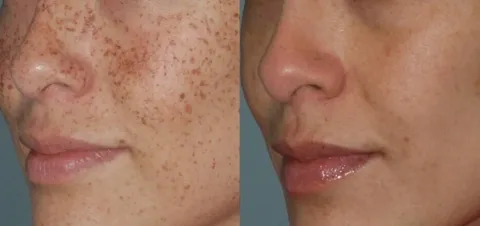
Skin cancer is one of the most common types of cancer worldwide, affecting millions of people each year. Despite its prevalence, it is also one of the most preventable and treatable forms of cancer when detected early. Regular skin cancer screenings play a vital role in identifying abnormalities before they progress into more serious conditions. Early detection can make all the difference between a simple, non-invasive treatment and a more complicated medical procedure. Understanding why early detection matters can help you take proactive steps to protect your health and maintain healthy skin throughout your life.
Skin cancer occurs when abnormal cells in the skin grow uncontrollably. The most common types include basal cell carcinoma, squamous cell carcinoma, and melanoma. While basal and squamous cell carcinomas typically grow slowly and are less likely to spread, melanoma can be aggressive and life-threatening if not caught early. All forms of skin cancer are largely linked to ultraviolet radiation from the sun or tanning beds, although genetics and environmental factors can also play a role.
Recognizing the warning signs of skin cancer is essential. Unusual moles, new growths, or changes in existing spots can indicate potential issues. However, because these changes are often subtle, professional screenings are critical in identifying suspicious areas that might otherwise go unnoticed.
Early detection of skin cancer significantly improves the chances of successful treatment and recovery. When identified at an early stage, most skin cancers can be removed with minor procedures and have an excellent prognosis. In contrast, delayed diagnosis can allow the cancer to spread deeper into the skin or to other parts of the body, requiring more complex and invasive treatments.
For example, melanoma, which accounts for a smaller percentage of skin cancer cases, is responsible for the majority of skin cancer-related deaths. Detecting melanoma early can increase survival rates dramatically. Regular screenings enable dermatologists and family doctors to identify these dangerous lesions before they pose a serious threat.
Routine skin exams are the foundation of early detection. During a screening, your doctor examines your skin for moles, spots, and lesions that appear irregular in color, size, or shape. They may use a dermatoscope, a specialized tool that allows for a closer view of the skin’s surface. These exams are quick, painless, and can often detect abnormalities that patients might overlook.
Family doctors are trained to recognize early signs of skin cancer and can refer you to a specialist for further evaluation if necessary. Regular checkups not only help detect cancerous growths but also identify other skin conditions that require attention, keeping your skin health in check.
While professional screenings are essential, self-examinations also play an important role in early detection. You should check your skin monthly for any new or changing moles or spots. The ABCDE rule can help you remember what to look for:
If you notice any concerning changes, it is important to schedule an appointment with your healthcare provider immediately. In addition to screenings, practicing sun safety is key to preventing skin cancer. This includes wearing sunscreen daily, seeking shade during peak sun hours, and avoiding tanning beds.
Everyone should have regular skin cancer screenings, but certain groups are at higher risk. Individuals with fair skin, light-colored eyes, a history of sunburns, or a family history of skin cancer should be especially vigilant. People who spend extended time outdoors or use tanning beds also face increased risks. Even if you have no visible symptoms, scheduling routine exams can ensure that any potential problems are detected early and treated effectively.
When it comes to skin cancer, time is critical. Early detection not only improves survival rates but also reduces the need for extensive treatments. It allows doctors to remove cancerous tissue before it spreads and preserves more of the surrounding healthy skin. Many patients who undergo regular screenings are able to treat skin cancer successfully and continue living healthy, active lives without major complications.
Your skin deserves the best protection and care possible. At Beach Family Doctors, we are committed to helping you stay proactive about your skin health through professional screenings and preventive care. Our team provides comprehensive Dermatology Care in Huntington Beach, CA, offering early detection and treatment options for all types of skin conditions. Schedule your skin cancer screening today and take an important step toward safeguarding your health and well-being.